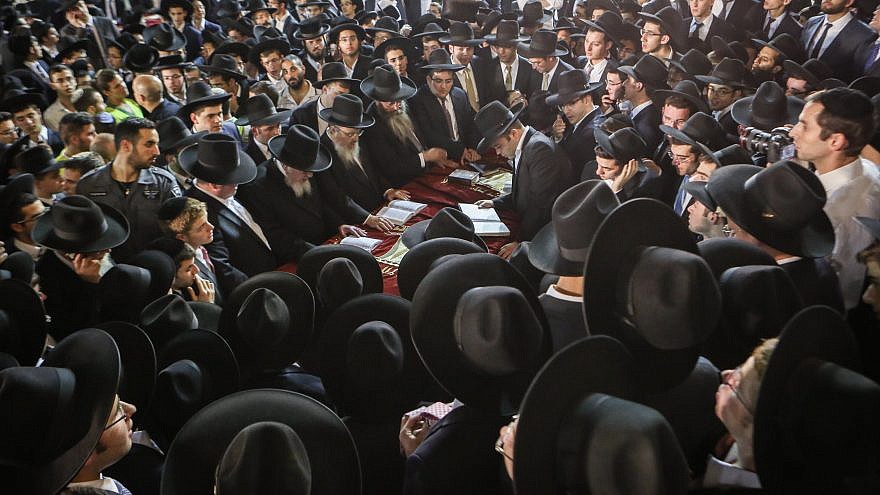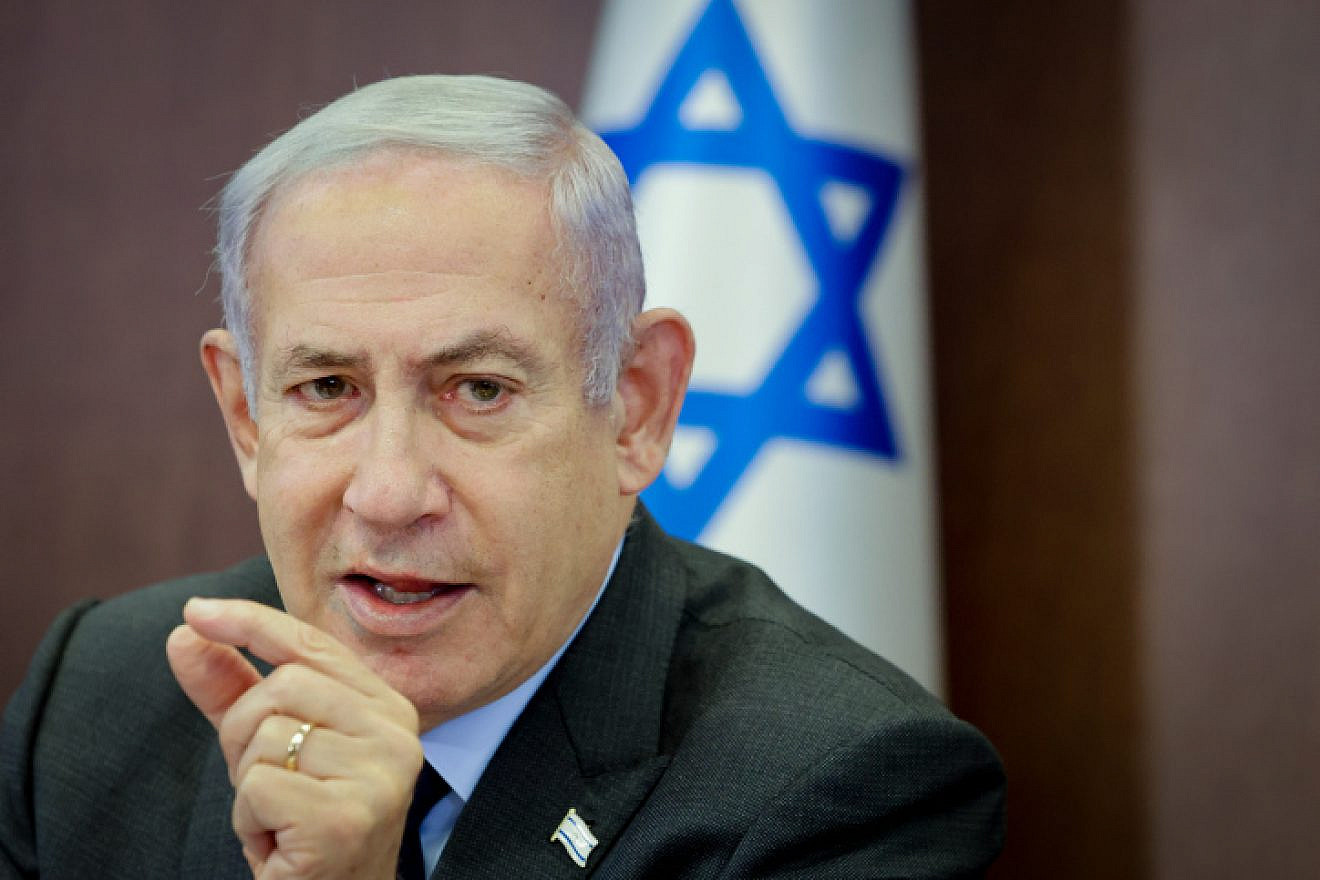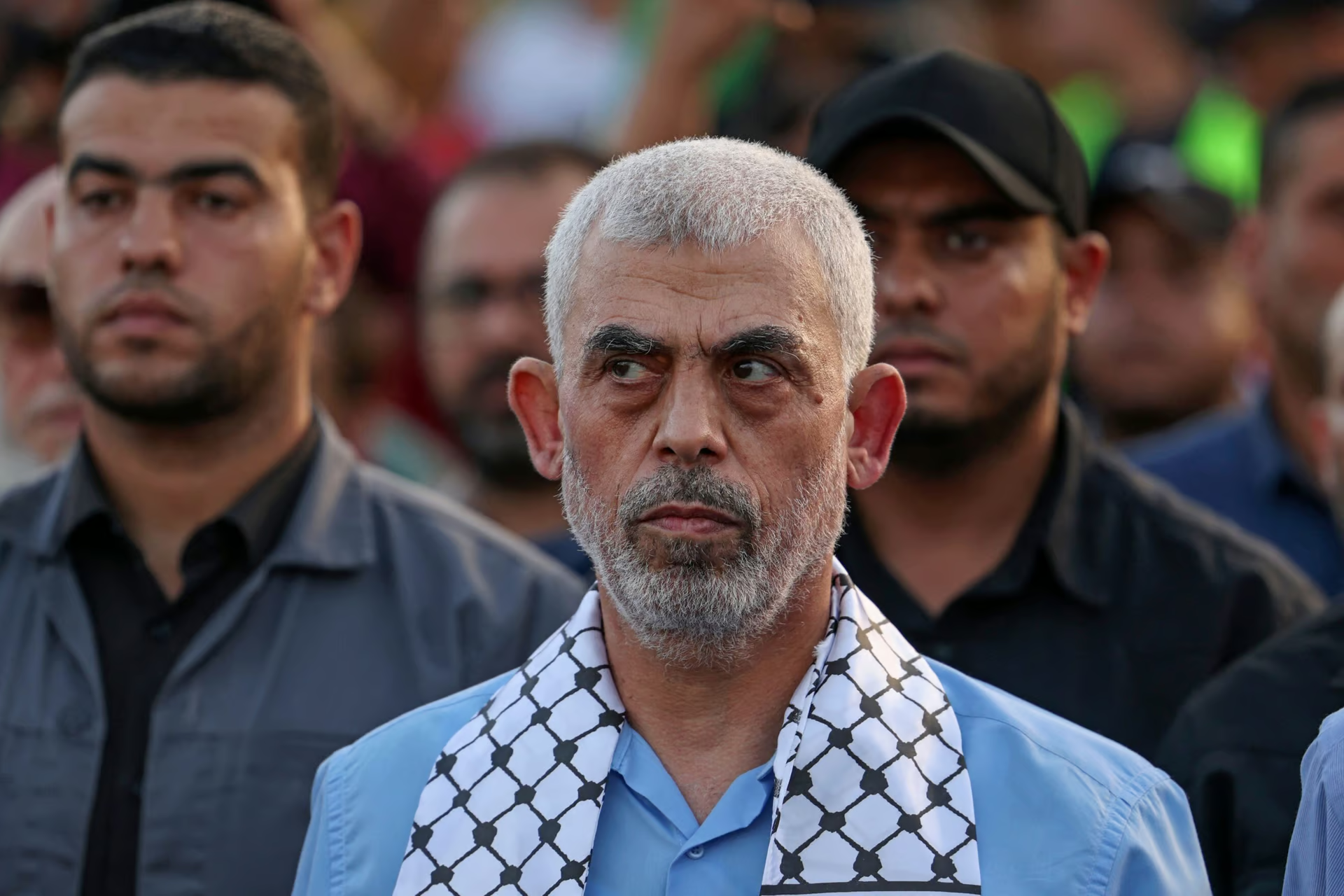Ultra-Orthodox Jews celebrate the end of the Shavuot holiday. Credit: Shlomi Cohen/Flash 90.
By Liora Chartouni
Haredi Jews are the happiest group in Israel, according to a 2022 life satisfaction and happiness survey conducted by Panels Politics. However, a report prepared by the Israel Democracy Institute noted that more than 44% of them live below the poverty line.
But only a very small percentage of the respondents felt poor. In a world where happiness is often associated with wealth, how are we to understand this apparent contradiction?
The Jewish tradition contains a vast amount of teachings that instruct its adapts on how to live and conceptualize life. Pirkei Avot, or the Ethics of our Fathers, a famous character development book, teaches: “Who is rich? He who is happy in his lot” (Mishna, Pirkei Avot 4). Perhaps this is the first way to explain the situation. Judaism teaches that you will receive whatever is meant for you, and if you don’t have it, then it is not supposed to be yours.
Benjamin Porat, director of the Institute for Research in Jewish Law at the Hebrew University of Jerusalem, says that “haredim are typically very spiritual and non-materialistic; they measure happiness according to a successful spiritual life, not by the cars one drives or the clothes one wears. There is no correlation between their level of poverty and their spiritual goals. It’s not that they don’t have desires or wishes, but those are more geared towards spiritual goals than material ones.”
This life perspective of being content with one’s situation and striving for spiritual rather than material goals certainly helps to explain why haredim are happy despite their generally precarious economic situation.
Moreover, a 2019 research article focusing on life satisfaction in the haredi sector reported that a “positive connection was found between prioritizing positivity and life satisfaction for individuals with a high sense of community, but a negative connection for those with a low sense of community.” This signifies that being happy with one’s lot also means exhibiting a positive attitude towards life, and that a sense of community plays an important role in feelings of happiness. This leads us to our third point.
Haredim’s extensive community support can also explain their happiness level. Most haredim choose to live in exclusively Orthodox areas where they feel surrounded and connected to people who share similar beliefs.
The eyes of their community
Nitsa (Kaliner) Kasir, a senior researcher on haredi-related issues, states: “They live in a closed community, and they therefore perceive the world according to the eyes of their community. If a certain community lives within another one whose conditions are better, they will compare themselves to it. But because the haredi community is closed, it therefore only has to compare itself to the haredi community at large. This greatly impacts their life perception, and consequently, their level of happiness.”
Additionally, community support can be expressed through deeds of chesed (loving-kindness), high levels of volunteerism, donations, mutual aid and care for the needy and elderly, as well as several frameworks of economic support. The community is a central pillar of the haredi lifestyle, and it results in its members feeling cared for, surrounded and content.
Orthodox Jews’ economic lifestyle and consumer behavior further explain their happiness level. The character of the haredi community, which differs significantly from that of Western society, forms an almost entirely closed economic market and enables its members to provide for their needs despite their lower incomes.
For instance, according to Kasir, “the Orthodox community often reuses non-perishable products, such as clothes, by passing them down among children in the family. They make purchases according to actual needs, and their spending on luxuries is very low.”
The haredim’s donation and loan mechanisms include different sorts of gma’him, which are types of community banks that do not charge interest or fees.
Expenses for electronic devices, such as cell phones and computers, are much lower among haredim compared to the rest of the Israeli population. Only one-third of adult members own a cellphone, of which only a small amount are smartphones, mostly due to restrictions on internet use. Television is rare in the haredi sector, as its members seek to safeguard observance of the laws of preserving one’s eyes from immodest behavior.
Moreover, there are certain products, services and activities that Haredim do not use: cinemas and mixed concerts, for example. There are other products and services, including transportation and communications, that the Orthodox community uses differently than other Israelis.
These phenomena invite us to revisit the meaning and feeling of happiness. Society at large places great emphasis on wealth and social status but Orthodox people may have one or two things to teach the Western mind about happiness.
Source: Liora Chartouni - JNS


































